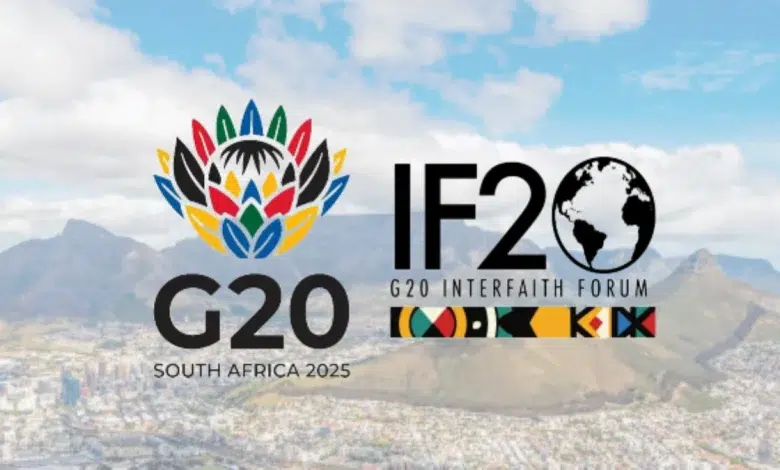Promoting Social Cohesion Through Education: Key Takeaways from G20 Interfaith Forum

From August 10 to 14, 2025, Cape Town played host to the G20 Interfaith Forum (IF20). This was a global gathering of religious leaders, scholars, government officials, and civil society representatives. The forum focused on fostering collaboration between faith communities and policymakers to address pressing global challenges. One of the standout themes was the role of education in promoting social cohesion across diverse societies.
ALSO READ: Global Power Realignment: BRICS and G20 Take Center Stage
Table of contents
- Why Social Cohesion Matters
- Interreligious Education as a Tool for Peace
- Addressing Root Causes of Tension
- Youth Engagement is Crucial
- Faith Communities’ Role in Education
- Local and Global Examples
- Education Beyond the Classroom
- How You Can Support Social Cohesion Through Education
- The G20 Interfaith Forum’s Vision
Why Social Cohesion Matters
Social cohesion refers to the bonds that bring people together, across different cultures, religions, and communities, to build peaceful, inclusive societies. In an increasingly interconnected world, tension and conflict often arise from misunderstandings and ignorance. These misunderstandings are about religious and cultural differences. The G20 Interfaith Forum spotlighted education as a powerful means to counter these divisions. It aims to promote harmony.
Interreligious Education as a Tool for Peace
Several sessions at the forum emphasised the importance of interreligious education. This involves teaching individuals about diverse faith traditions to foster empathy, respect, and critical thinking. Programmes like Indonesia’s Cross-Cultural Religious Literacy (CCRL) initiative have demonstrated real benefits. Integrating religious literacy in schools helps break down barriers and reduce prejudice.
Additionally, Arigatou International’s Learning to Live Together curriculum highlighted how ethics education grounded in interfaith dialogue encourages children and youth. They are encouraged to value dignity, compassion, and reconciliation. These educational efforts align with the United Nations Sustainable Development Goal 4.7. This goal promotes education for global citizenship and a culture of peace.
Addressing Root Causes of Tension
The forum highlighted that social divisions are driven by elements such as misinformation, historical grievances, political exploitation, and economic disparities, all of which education can help address. By promoting religious literacy and ethical understanding, education empowers learners. They are empowered to challenge stereotypes and make informed moral choices.
Youth Engagement is Crucial
A key focus was on youth. The forum recognises them as both most affected by social tensions and most capable of shaping the future. Plenary and breakout sessions discussed creating safe learning spaces for young people. In these spaces, they develop values of solidarity, mutual respect, and critical thinking. Participants urged involving youth voices in designing education programmes. This ensures relevance and impact.
Faith Communities’ Role in Education
Religious organisations and leaders have a central part to play in promoting educational approaches that unify communities. Trusted figures can facilitate dialogues, model peaceful coexistence, and support policy efforts to include religious literacy in curricula. The G20 Interfaith Forum supports engaged partnerships between faith groups, educators, and governments to build cohesive societies.
Local and Global Examples
The forum showcased practical examples from South Africa, Southeast Asia, and other regions. These examples show where educational efforts have successfully mitigated religious tensions. They include joint school activities bridging Christian and Muslim students. There are also community-led workshops to prevent violence.
Education Beyond the Classroom
Beyond formal education, the forum also discussed ethical frameworks from religious traditions. These frameworks guide emerging global challenges like responsible artificial intelligence (AI) development. Additionally, they address gender-based violence (GBV). This wider lens underscores the importance of interfaith ethics education. It is crucial for shaping just and compassionate societies.
How You Can Support Social Cohesion Through Education
- Encourage local schools to include lessons on religious and cultural diversity.
- Support programmes that create safe spaces for dialogue and interfaith learning.
- Advocate for youth participation in designing educational content.
- Engage faith leaders in educational initiatives promoting peace and respect.
- Stay informed about global initiatives like the G20 Interfaith Forum and spread awareness.
Discover how preparations for the G20 Summit are boosting Gauteng’s economy and creating lasting opportunities for local businesses. G20 Summit Build-Up Drives R21 Billion Domestic Spending in Gauteng. Click here to learn more.
The G20 Interfaith Forum’s Vision
The IF20’s ongoing work will focus on enhancing cross-cultural religious literacy, social cohesion, and ethical leadership globally. Educational recommendations from the forum aim to influence G20 policy leaders as they tackle inequality, extremism, and social fragmentation.
The forum’s commitment is anchored in the African philosophy of Ubuntu, “I am because we are.” This philosophy emphasises our shared humanity and responsibility to ensure inclusive development. As South Africa leads the G20 Presidency, this vision gains global significance.



